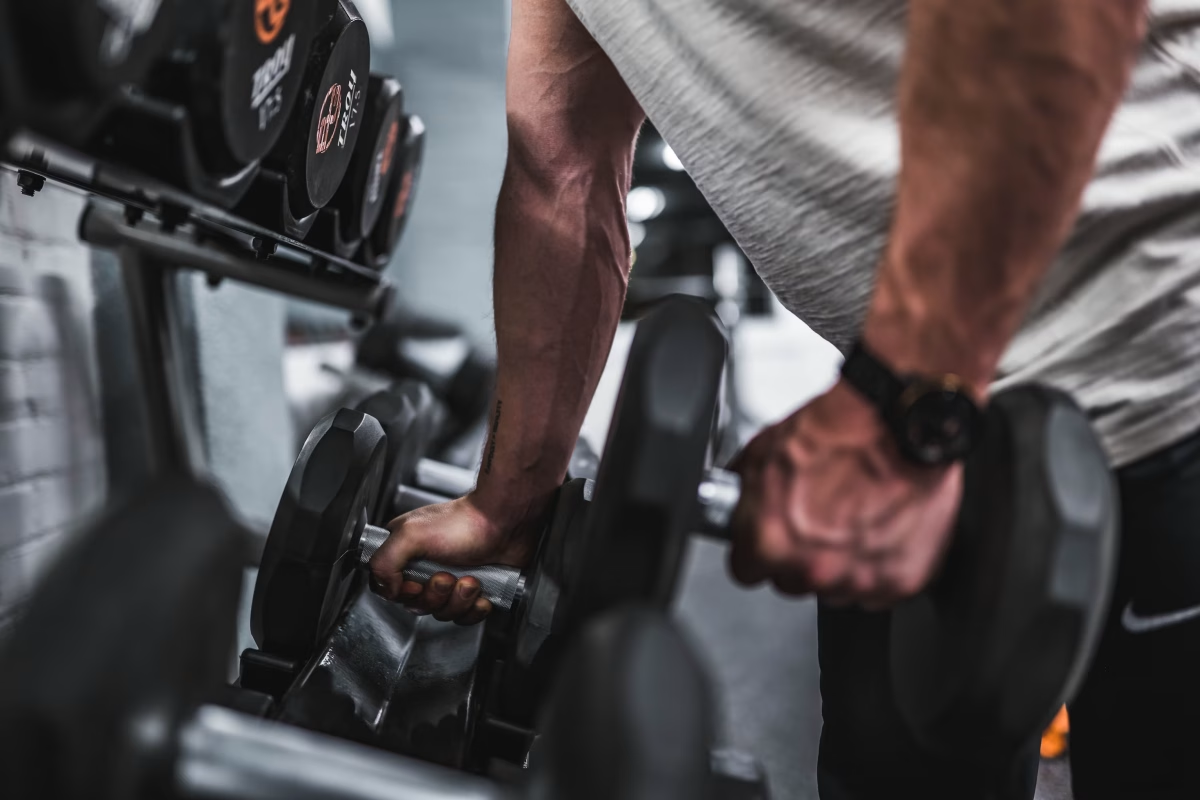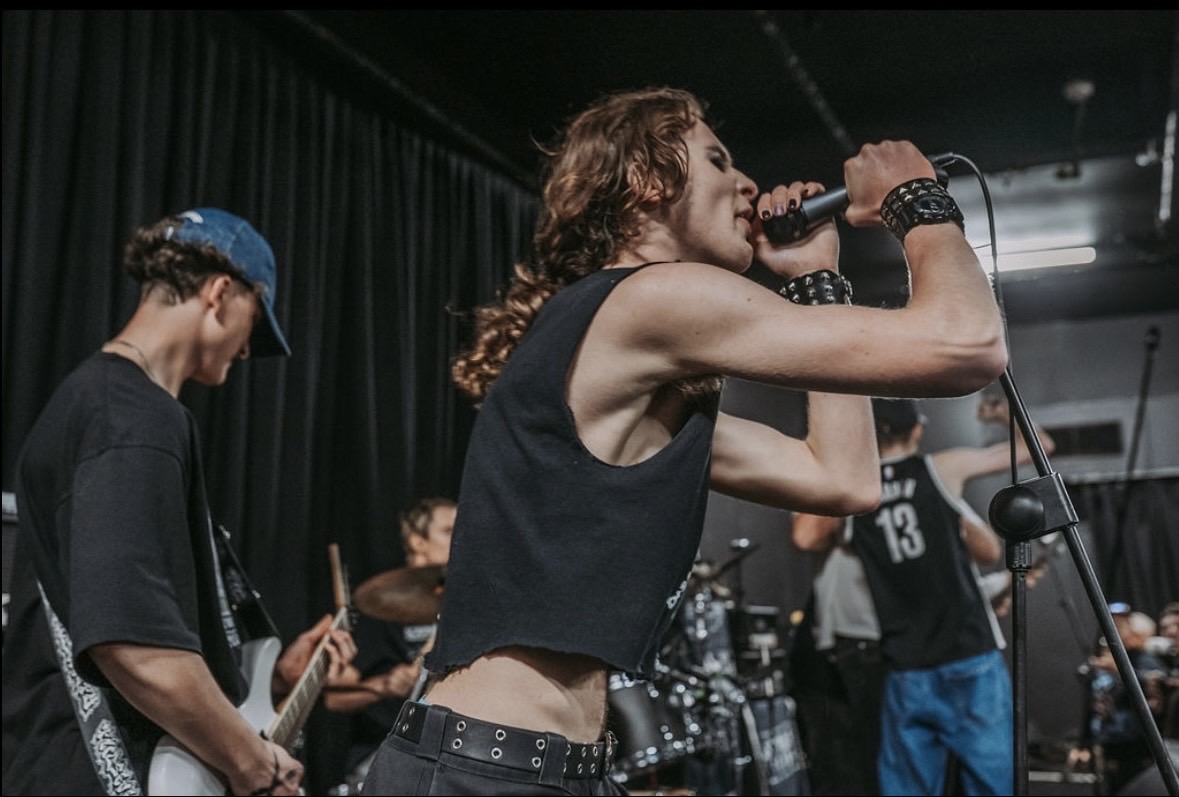Twenty times.
Australian defence force veterans are 20 times more likely to die by suicide than in combat: a horrifying and heartbreaking finding from the Royal Commission into Defence and Veteran Suicide – horrifying for the public but purely heartbreaking for retired soldier Laurie Cattanch.
After surviving six gruelling years of training and a deployment to East Timor, Laurie was to face his toughest battle on home soil.
When serving his country, it was Laurie’s infantry by his side. Some of those comrades were lost – two died in Afghanistan conflicts years after Laurie was discharged and another six mates were lost to the battle of post-traumatic stress disorder (PTSD). That is a battle Laurie still fights, but now with Buddy by his side.
Buddy, the red and white border collie assistance-dog, nuzzles his way to sit beside Laurie, as Laurie describes some close calls of dodging enemy fire. The bond between man and canine is obvious. They are best mates. Their love is life-saving.

The Royal Commission made 122 recommendations to better help serving and ex-serving Australian Defence Force members.
Laurie, now 47, shakes his head and can only say “I’m not surprised”.
Not surprised a veteran is having suicide-related contact with emergency services every four hours.
Not surprised every fortnight three veterans are dying by suicide.
Not surprised one of the recommendations is utilising alternative therapies.
Laurie, who lives at Coolum Beach on Queensland’s Sunshine Coast, needs regular physiotherapy, surgeries and doctors’ visits.
He says the process of being recognised and then making claims through Department of Veterans Affairs (DVA) is so difficult that veterans often give up. Laurie persisted with the difficult process and his medical expenses are covered by DVA and he gets a pension from Defence. He wants all veterans to have access to healthcare through DVA.
“I can’t remember not being in pain at all. It got to the point I could barely walk,” Laurie says.
Thirty years after joining the army Laurie is left with unhealed mental and physical wounds. He will not be free of them, but has learnt to manage – with support.
Battling heat and pain
The sun is bright, humidity high and there is no sign of rain. The temperature climbs higher. The sun sears Laurie’s face. The heat is so intense his skin is crisp to the core and burns like a hot saucepan. He is confused, irritable and cannot stand up. He is barely holding on. He collapses. The Melbourne boy is not used to the dry, burning and sticky conditions of infantry training to 1st Battalion in Townsville.
Decades later, Laurie is lying on the floor – flat – in the middle of the shopping centre with excruciating pain.
Laurie joined the army at 17, starting basic training at Blamey Barracks in Kapooka near Wagga Wagga. He chuckles telling the story of being young and thinking he is bulletproof. It was as a young off-duty soldier that he was drinking on top of a two-storey building and fell off, bouncing onto his head like an Aussie rules football.
Laurie was discharged in 2006. This did not last long. He had itchy feet and felt he wanted to give some more. He rejoined in 2010 as a storeman, which he figured was a job more suited because it might save his body from taking more beating.
But early on, Laurie struggled with the physical and mental wounds. He vaguely recalls an argument with his daughter that left him flooded with emotions. He burst into tears, broke down and could not function. In that moment, Laurie made the most courageous and bravest decision – asking for help. He is one of the lucky ones, brave enough to make the call.
“I called the army and said ‘come and get me. I need to get some help’,” he says.
Getting help, meeting Buddy
Laurie was medically discharged in 2015 with adjustment disorder and moved to the Sunshine Coast. Laurie was admitted to Cooinda Clinic in Buderim and diagnosed with PTSD and depression.
“At the time, my psychiatrist was like, ‘you gotta get out and you gotta do something; you gotta try and be part of the world’,” he says.
Laurie headed to Eumundi Markets with his family on a hot humid day. He was in agonising pain, slowly walking around and noticed PTSD Dogs Australia and began chatting to founder Angie Weeks. The charity trains assistance dogs for veterans with PTSD. It took Laurie three months before he gained the courage to volunteer.
Counsellor and animal-assisted psychotherapist Jodi-Maree Cronin says veterans with PTSD can find enormous benefits from meaningful relationships with animals.
“You don’t want to go out (when you have PTSD),” she says. “You don’t want to see people, not even family. You don’t want to be touched by somebody. You’re barely sleeping, barely keeping it together.”
Laurie compares his nightmares to author Stephen King’s books but worse than this horror genre, if possible. “A lot of them revolved around pain. When my pain is bad, I get nausea and can feel quite sick, so in my nightmares I’m vomiting regularly. I would wake up with the worst headaches, sweating, goose bumps and then not wanting to go back to sleep,” Laurie says. When Laurie has a nightmare, Buddy places his soft white paw on Laurie’s arm to wake him, which instantly calms Laurie. Buddy’s is a magic touch.
Laurie’s face beams as he looks at Buddy and remembers meeting him at a Bunnings’ carpark. Buddy is soft, has one blue eye, one brown eye, a gentle aura and a calming vibe. Like many other dogs, Buddy does not like live music, the postie or motorbikes. But he will endure anything for Laurie and has not left his side since the day they met, which was six years ago. He is a lifeline, a safe place.
“I didn’t want to live in pain anymore,” Laurie says. “If I didn’t have a reason … for the kids and if I hadn’t got Buddy, I don’t know what would have happened.”
PTSD Dogs Australia helped Laurie train Buddy. Buddy notices Laurie’s pain cues and PTSD symptoms. And the affection all humans need.
“I wasn’t getting any affection at all because, one – I couldn’t deal with it. Two – my girls don’t wanna hug me because I was angry all the time. That lack of feeling for anything was terrible. Because he’s cuddling me, even if I’m angry, he’s drawing out affection,” Laurie says.
Laurie’s marriage could not be saved but his relationship with his daughters is stronger than ever.
In response to the Royal Commission’s report, the Secretary and the Chief of the Defence committed to implementing recommendations across Defence. The government has also accepted almost all the recommendations.
Laurie is nine years out of the Army, but the mateship and sense of family still runs through his veins. Laurie wants the recommendations to be implemented to help stop the continuation of harm.
He does not want veterans being 20 times more likely to die by suicide than in combat. He does not want three veterans dying every fortnight. He does not want a veteran making suicide-related contact with emergency services every four hours.
Help lines
Safe Zone Support, Open Arms – 24/7 1800 142 072
Free and anonymous counselling line for all serving and ex-serving members, and their families.
Defence Member and Family Helpline 1800 624 608
Defence provides a range of services, assistance and resources to support ADF members and their families.
Defence All-Hours Support Line 1800 628 036
A confidential helpline for ADF members and their families facilitating access to ADF or civilian mental health services.
Lifeline Australia – 24/7 crisis support Call 13 11 14





















